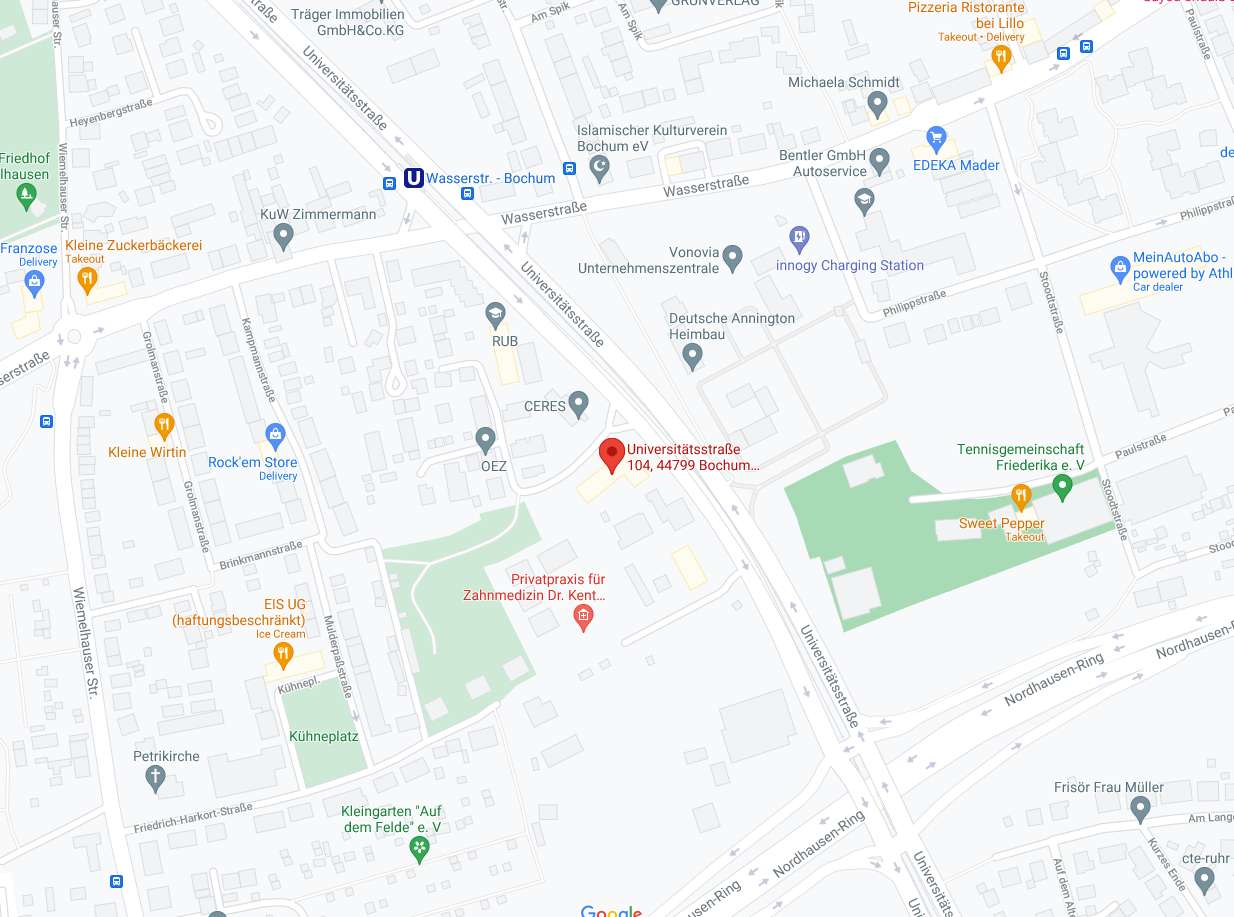Going to-future und will-future
1. going to-future
1.1 Bildung
- Das going to-future ist zusammengesetzt aus einer Form von be im Präsens, der festen Konstruktion going to und dem Infinitv des Verbs.
|
am/are/is + going to + Infinitiv |
Beispiel:
Peter is going to watch a movie but Lisa is not going to join him.
5.1.2 Gebrauch
- Das going to-future wird verwendet, wenn
- man ein Vorhaben oder eine Absicht für die (nahe) Zukunft ausdrücken möchte.
- man mit Sicherheit oder großer Wahrscheinlichkeit sagen kann, dass sich etwas ereignen wird, weil bereits Anzeichen dafür vorhanden sind.
Beispielsätze:
What are you going to do this afternoon?
Sarah is going to finish her project tomorrow.
Look at the sky. It is going to rain soon.
Silvia is pregnant. She is going to have a baby. - Bei den Verben go und come kann das present progressive anstatt des going to-future verwendet werden.
Beispiele:
I’m going to the disco tonight. – I’m going to go to the disco tonight.
Is Susan not coming with you? – Is Susan not going to come with you?
2. will-future
2.1 Bildung
- Das will-future wird mit will und dem Infinitiv gebildet.
|
will + Infinitiv |
Beispiel:
There will be snow up North and heavy thunderstorms in the South.
- In der Umgangssprache wird häufig die Kurzform verwendet.
- Die Verneinung ist won’t.
- Gelegentlich wird - nur jeweils in der 1sten Person Singular/Plural - shall/shan’t verwendet.
Beispiele:
Is it Peter’s birthday? - Yes, I think he’ll be seventeen.
Won’t you go to Peter’s party?
I shall think about it. Maybe I shan’t think about it for too long.
2.2 Gebrauch
- Das will-future wird verwendet, wenn…
- man über zukünftige Geschehen sprechen möchte, auf die man keinen Einfluss hat.
- man eine Vermutung oder Vorhersage über ein zukünftiges Geschehen ausdrücken möchte.
- man einen spontanen Entschluss oder eine Reaktion äußern möchte, die nicht geplant war.
Beispielsätze:
Tom will turn 22 next month.
Sooner or later he will ask her to marry him.
I’m sure she’ll look pretty in her new dress.
Wait, that looks heavy, I’ll help you. - Signalwörter für das will-future:
-
I’m sure
I think
I suppose
maybe
perhaps
probablyIch bin sicher…
Ich denke…
Ich nehme an…
vielleicht, vermutlich
vielleicht, vermutlich
vielleicht, vermutlich- Achtung! Das will-future kann nie in einem if-Satz stehen. Dennoch können Bedingungen, die sich auf die Zukunft beziehen, ausgedrückt werden.
Beispiel:
If Peter doesn’t call me, I’ll call him myself tomorrow. - Achtung! Mit dem will-future wird eine Absicht geäußert, die spontan beschlossen wurde.
- Beim going to-future hat eine Absicht bereits bestanden.
Beispielsätze:
Sam has called. – Oh, okay. I will call him back as soon as possible.
Sam has called. – I know. I’m going to call Sam back tonight.
3. Übungsaufgaben zum Futur
3.1 Please answer the following questions using going to-future
Example: Have you answered this question? (one hour)
No I haven’t, but I’m going to answer it in an hour.
a) Have you bought the tickets? (on Friday)
b) Have you called Laura? (in two minutes)
c) Have you packed your suitcase? (in three hours)
d) Have you done your washing? (in a week)
3.2 Translation
a) Vielleicht wird es heute Abend regnen.
b) Ich denke, Morgen ist nicht sein Geburtstag.
c) Früher oder später wird sie Mathematik verstehen.
d) Wir nehmen an, wir werden am Samstag keinen Spaß in der Schule haben.
e) Wenn er heute nicht zur Arbeit kommt, wird er seine Arbeit verlieren.
3.3 Going to-future or will-future?
a) I’m sure she … (to look) fantastic in her wedding dress.
b) It … (to rain) soon, just look at those clouds.
c) Are you going to the concert tonight? – I’m afraid I … (not be able to).
d) Do you have plans for the summer holidays? – Yes, I … (to travel) through Asia.
e) Could you help me with my homework tonight? – OK, I had plans but I … (to help) you.4. Lösungen zu den Übungsaufgaben
3.1 Lösungen
a) I’m going to buy the tickets on Friday.
b) I’m going to call Laura in two minutes.
c) I’m going to pack my suitcase in three hours.
d) I’m going to do my washing in a week.
Lösungen 3.2
a) Maybe it will rain tonight.
b) I think it won’t be his birthday tomorrow.
c) Sooner or later she will understand mathematics.
d) We suppose we won’t/shan’t have fun at school on Saturday.
e) If he doesn’t come to work today, he will lose his job.
Lösungen 3.3
a) I’m sure she will look fantastic in her wedding dress.
b) It is going to rain soon, just look at those clouds.
c) I’m afraid I won’t/shan’t be able to.
d) Yes, I am going to travel through Asia.e) I had plans but I’ll help you.
- Achtung! Das will-future kann nie in einem if-Satz stehen. Dennoch können Bedingungen, die sich auf die Zukunft beziehen, ausgedrückt werden.
Fragen & Antworten
Ja, bei tutoria bieten wir die Möglichkeit eines Probeunterrichts an, um sicherzustellen, dass unsere Nachhilfeleistungen den individuellen Bedürfnissen Ihres Kindes entsprechen. Der Probeunterricht ermöglicht es uns, den Lernbedarf Ihres Kindes besser zu verstehen und einen passenden Nachhilfelehrer auszuwählen. In diesem ersten Treffen kann Ihr Kind den Nachhilfelehrer kennenlernen, Fragen stellen und erste Lernerfolge erzielen.
Unsere Nachhilfestunden dauern in der Regel 2x 45 Minuten. Diese Zeitspanne ermöglicht eine effiziente und konzentrierte Lernsituation, die es unseren qualifizierten Nachhilfelehrern ermöglicht, den Lehrstoff optimal zu vermitteln und individuelle Fragen zu beantworten.
Wir verstehen, wie wichtig eine vertraute Umgebung für den Lernprozess ist, daher findet bei tutoria die Nachhilfe immer bei Ihnen zu Hause statt. Unsere qualifizierten Nachhilfelehrer kommen direkt zu Ihnen nach Hause, um eine Lernumgebung zu schaffen, in der Ihr Kind sich wohl fühlt und sich gut konzentrieren kann.
Die Kosten für eine Nachhilfestunde bei tutoria variieren je nach der gewünschten Dauer und Laufzeit der Nachhilfe. Der Preis für eine 45 Minuten Einheit beginnt ab 19,90€. Wir sind stolz darauf, eine faire Preisgestaltung anzubieten, die es unseren Schülern und ihren Familien ermöglicht, die für sie passende Nachhilfeleistung zu finden.
Bei tutoria sind unsere Nachhilfelehrer sorgfältig ausgewählt und verfügen über umfassende Qualifikationen, um sicherzustellen, dass Ihr Kind die bestmögliche Unterstützung erhält. Unsere Nachhilfelehrer sind erfahren darin, den Lehrstoff effektiv zu vermitteln und auf die individuellen Bedürfnisse der Schüler einzugehen. Außerdem sind sie Experten in ihren Fachgebieten und haben nachweislich umfassende Kenntnisse in den relevanten Schulfächern. Sie sind in der Lage, den Lehrstoff verständlich zu erklären und Lernstrategien zu vermitteln, die zu nachhaltigem Erfolg führen.



























